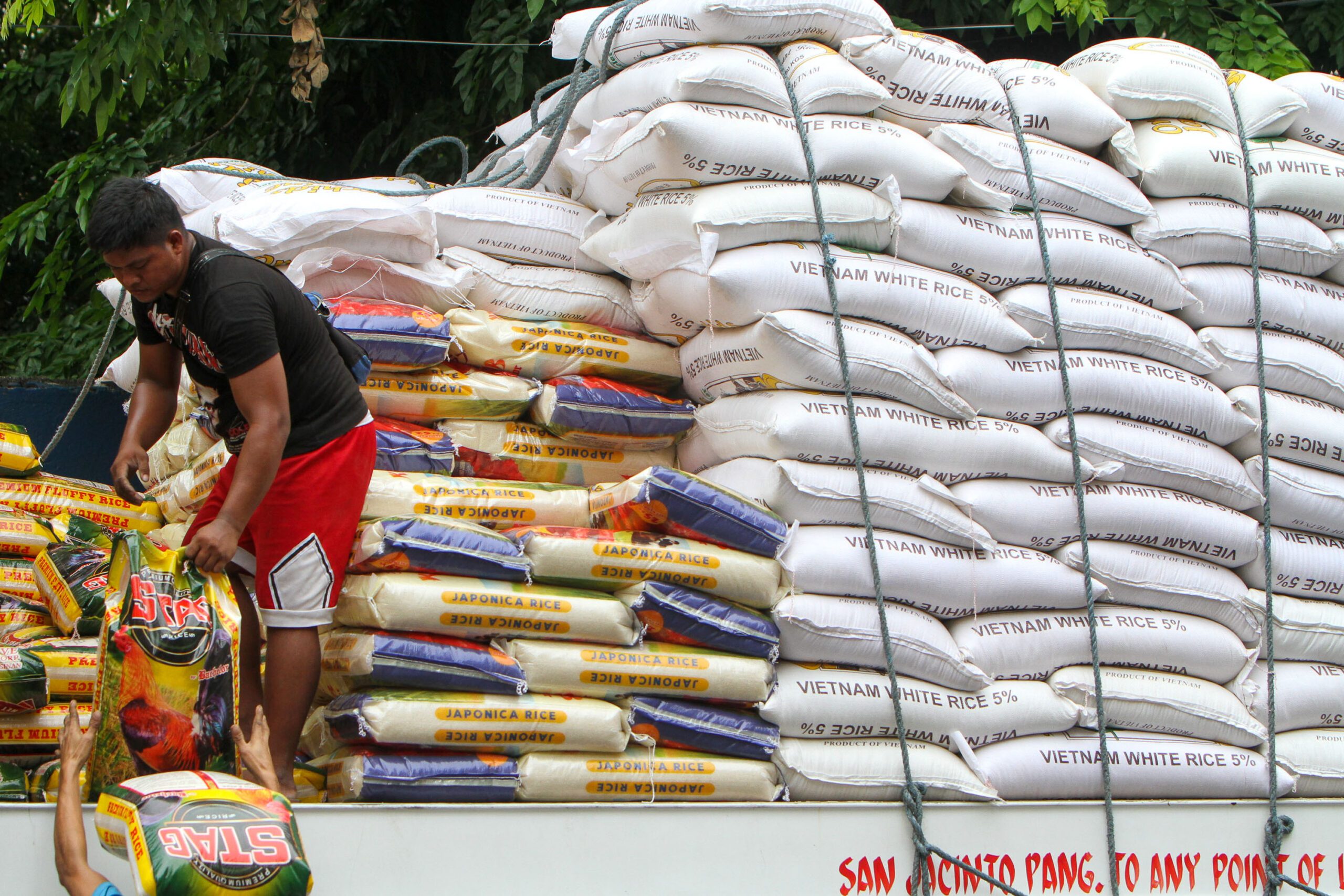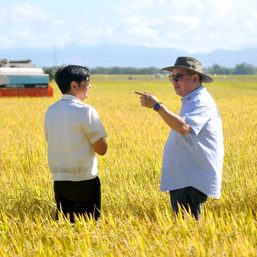SUMMARY
This is AI generated summarization, which may have errors. For context, always refer to the full article.

MANILA, Philippines – The Department of Agriculture (DA) on Wednesday, August 16, briefed the House agriculture panel about the need to import rice to augment existing stocks in preparation for El Niño – a policy that drew criticism from some lawmakers who could not fathom why the Philippines would not focus instead on improving domestic production.
During the DA briefing, Agriculture Undersecretary Mercedita Sombilla told the House panel that among their recommendations were to:
- import 600,000 metric tons of rice for the lean months or ahead of the harvesting season in October
- omport 500,000 metric tons of rice from November 2023 to January 2024 in case El Niño peaks
“As of July, 2.005 million metric tons of rice have arrived in the country,” Sombilla added.
Abono Representative Robert Estrella told the DA that the country’s dependency on imports is tantamount to a “white flag surrender.”
“You want importations to go faster. You want a green lane. You want DFA to ask Vietnam, Thailand, and India [for assistance]. You want to extend Executive Order No. 10 lower the tariff of imported rice. Puro import na lang kayo (You’re always importing),” Estrella said.
Bukidnon 3rd District Representative Jose Maria Zubiri also lamented that the policy direction is geared towards rice importation.
“It’s about time our country should produce our own rice, corns, all of these things. Puro na lang tayo importation. Hindi na tayo nabubuhay sa sarili natin. Dati tayo pa ang nag-e-export (We’re all about importation. We cannot live on our own. In the past, we were the rice exporters),” he said.

Sufficient supply
DA officials guaranteed, however, that there is no shortage of rice in the country, consistent with the messaging of the Presidential Communications Office in its press release issued the same day.
Outlook data from DA show that even without rice imports, supply would exceed demand for the remaining months of the year, although the ending stock by December would only be enough to last the country another two months.
A farmers’ group present during the hearing also tried to allay fears on the matter.
“El Niño will not affect the harvest during this cropping season – maybe 2% of the total only. It will only make an impact if they plant in November, and harvest next cropping,” said Samahang Industriya ng Magsasaka (SINAG) chairman Rosendo So.
“Our preparation is only for the next cropping. Our stock will last up to February; with imports, until March,” he added.
Price spike
The agriculture department confirmed that the farm gate and retail prices of rice are in an upward trend.
“But this is not primarily because of local supply, as our domestic production has increased, but because of what’s happening in the prices of inputs, fertilizer prices, fuel costs, and international events,” Sombilla said.
These international events include Russia’s withdrawal from the Black Sea Grain Initiative, and India’s move to ban rice exports.
House social services panel chairperson Ria Vergara of Nueva Ecija’s 3rd District called on the government to stop cartels from taking advantage of the current rice situation.
“[We must] ensure our cartels will not use the same playbook that they did in the onions that happened last year. We have seen how these cartels operate,” Vergara said.
Marcos – who is concurrent DA secretary – again vowed on Wednesday to go after hoarders and price manipulators, and ordered his agency and the Department of Trade and Industry to monitor rice prices in the market.
“We should be able to manage [prices] by ensuring supply is available. Because if we say we have a shortage, they tend to hoard. So there is really a need to inspect warehouses to ensure they are unloading their stocks,” Sombilla said. – Rappler.com
Add a comment
How does this make you feel?



![[ANALYSIS] The department of ambivalent, if not ambiguous agriculture](https://www.rappler.com/tachyon/2024/05/department-of-ambivalent-05252024.jpg?resize=257%2C257&crop=279px%2C0px%2C720px%2C720px)




![[ANALYSIS] How one company boosts farmer productivity inside the farm gate](https://www.rappler.com/tachyon/2024/06/bioprime-farmgate-farmer-productivity-boost.jpg?resize=257%2C257&crop=465px%2C0px%2C1080px%2C1080px)
There are no comments yet. Add your comment to start the conversation.